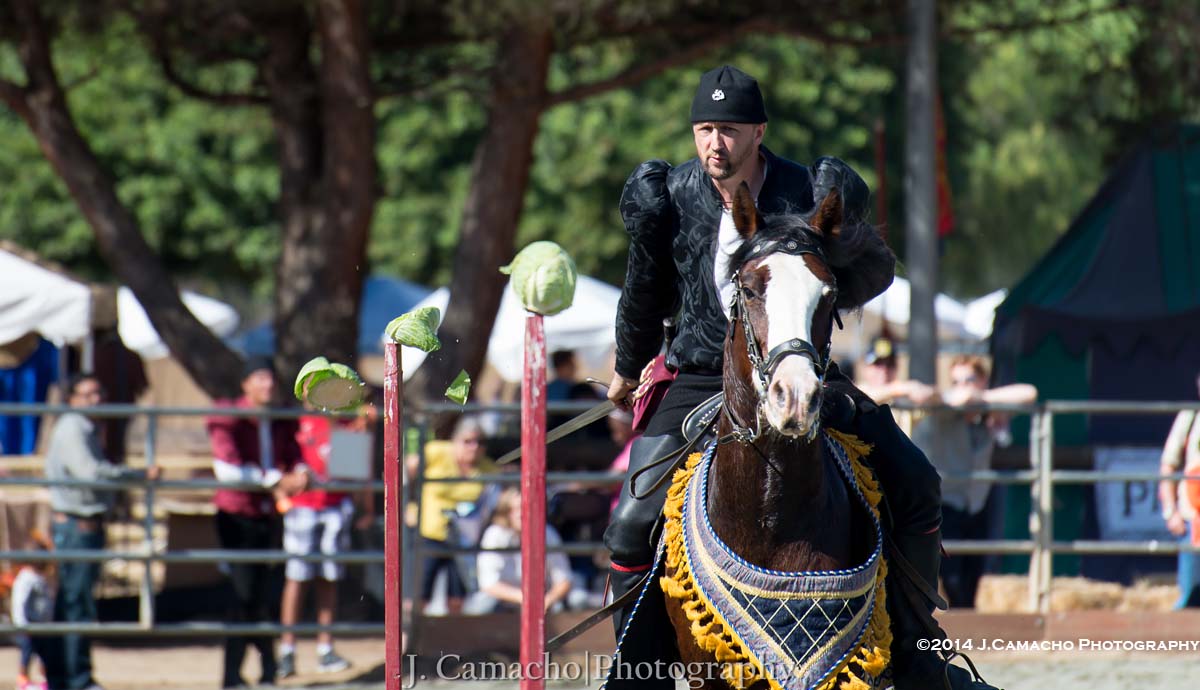
The importance that the nobility placed on the sport of hunting cannot be overstated. The oldest book on hunting in English was written about 1413 by Edward of Norwich, Duke of York, and dedicated to Henry, Prince of Wales, the future Henry V. Titled The Master of Game, it was primarily a translation of Le Livre de Chasse by Gaston III, Count of Foix: [M]en are better when riding, more just and more understanding, and more alert and more at ease and more understanding, and better knowing all countries and all passages; in short and long all good ...
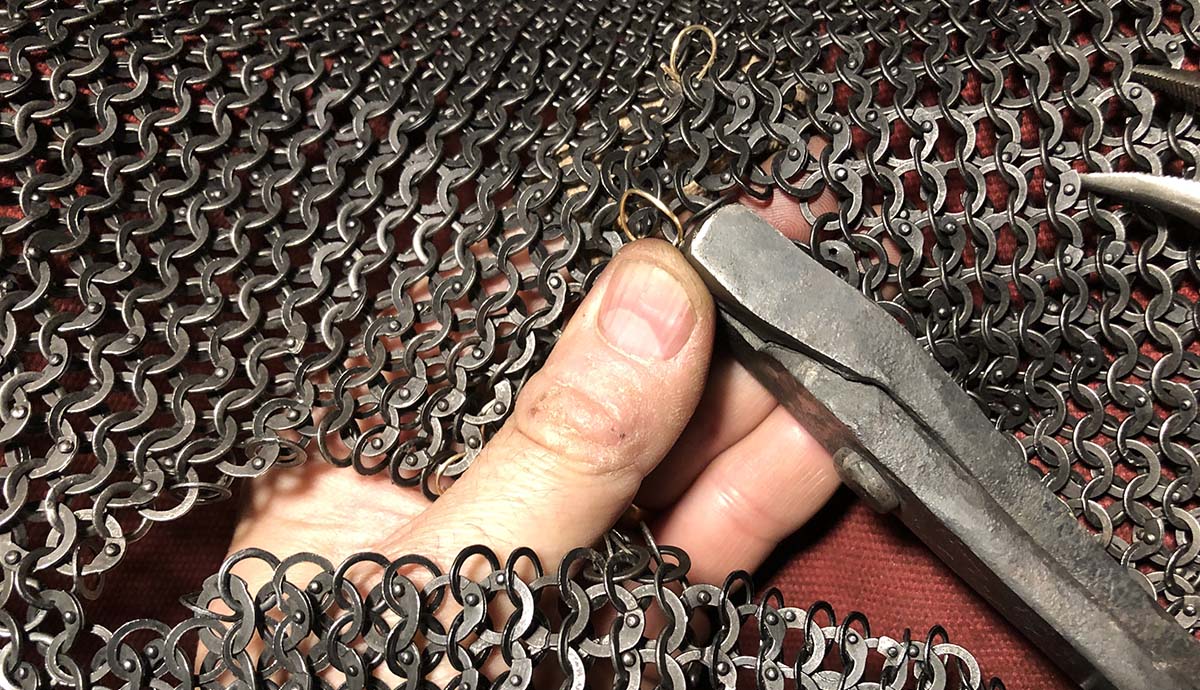
It started innocently enough. I bought a nice riveted mail standard, or collar, made from 6mm blackened mild steel rings from Mark Hale at Cap-a-pie. It came without a liner or method of closure. I commissioned a hinge clasp designed by Josh Davis of Davis Reproductions, based on period artwork and surviving examples, and stitched my own lining from a couple layers of linen and topped it with red leather. However, it still needed something to set it apart, so I decided to add a couple rows of brass rings. It was a very ...
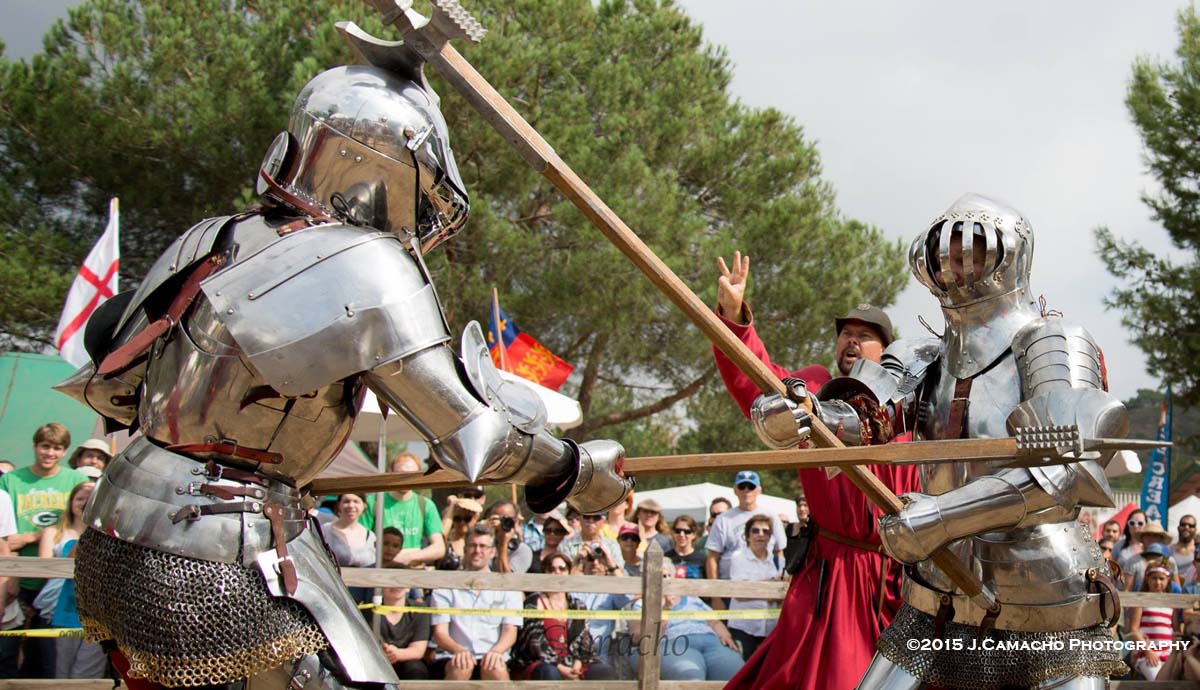
Whether judicial trial by combat, a chivalric duel, or a deed of arms, the pollaxe was the primary weapon of choice between armoured men. By the fifteen century, the sword and dagger were considered secondary weapons, only capable of causing harm to an opponent by exploiting the small gaps in his plate armour. The pollaxe was essentially an axe, hammer, and spear affixed atop a sturdy shaft about the height of its wielder. Near the beginning of the fifteenth century, an anonymous Milanese fencing master in service to Philip II "the Bold" ...
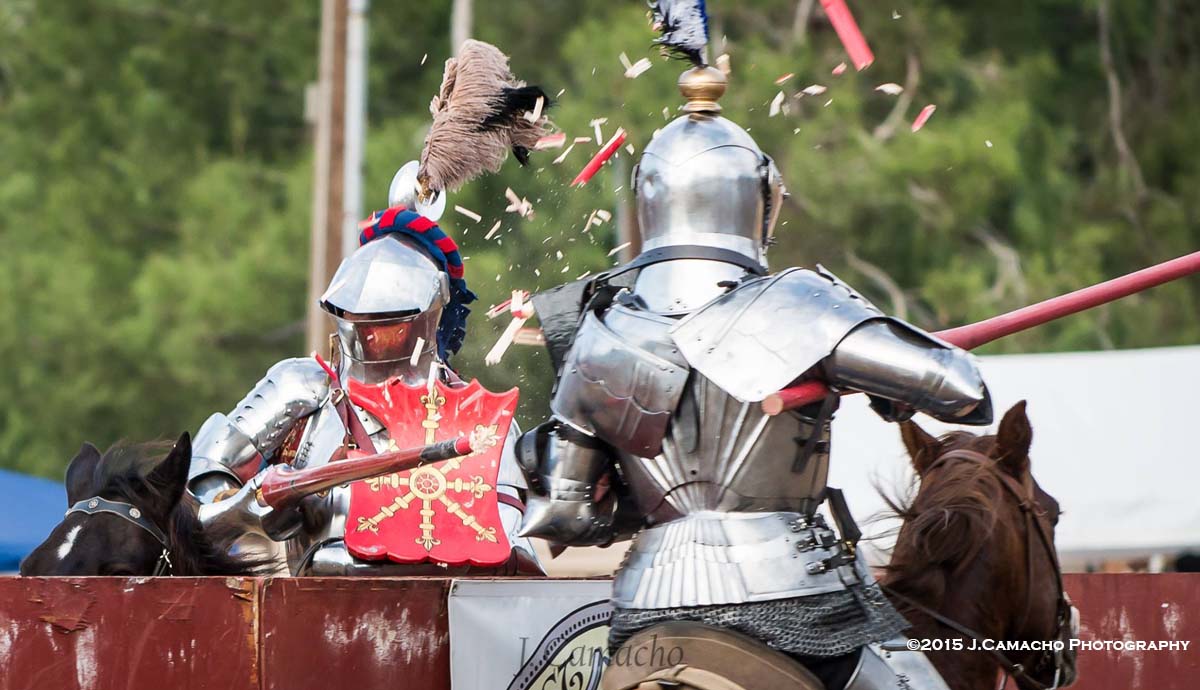
Prior to the 15th century, jousters met in an open field and could pass on the right or the left side. Riders and horses were prone to severe injury in the event of a collision. In 1429, at a joust in Arras, France, a rope was hung with cloth to separate the contestants. It was called the tilt or toile. It is likely that the tilt barrier originated in Italy as early jousts with a barrier were referred to as the Italian Course. It did not reach England until the 1430s. Eventually, the cloth barrier evolved into a sturdy wooden wall. Prior to the 15th century, jousters met in an ...
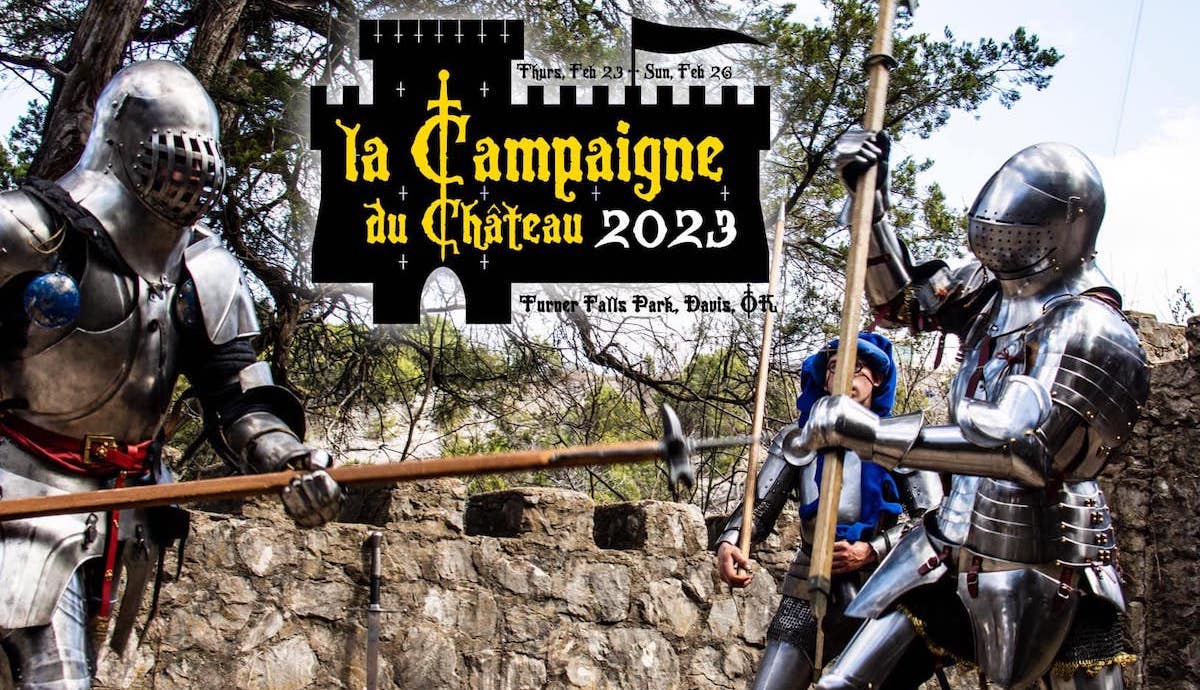
The third annual La Campaigne du Château 2023 was an event hosted by the Company of the Lynx Argent that took place from 23 - 26 February 2023 at Turner Falls State Park in Davis, Oklahoma. It was billed as "a weekend immersed in the time of the latter half of the Hundred Years' War. Events of the weekend include armored and unarmored passages of arms, hiking to and exploring a castle in armor, mixed armor group skirmishes, and everything from fighting to music and dancing, plus period food...
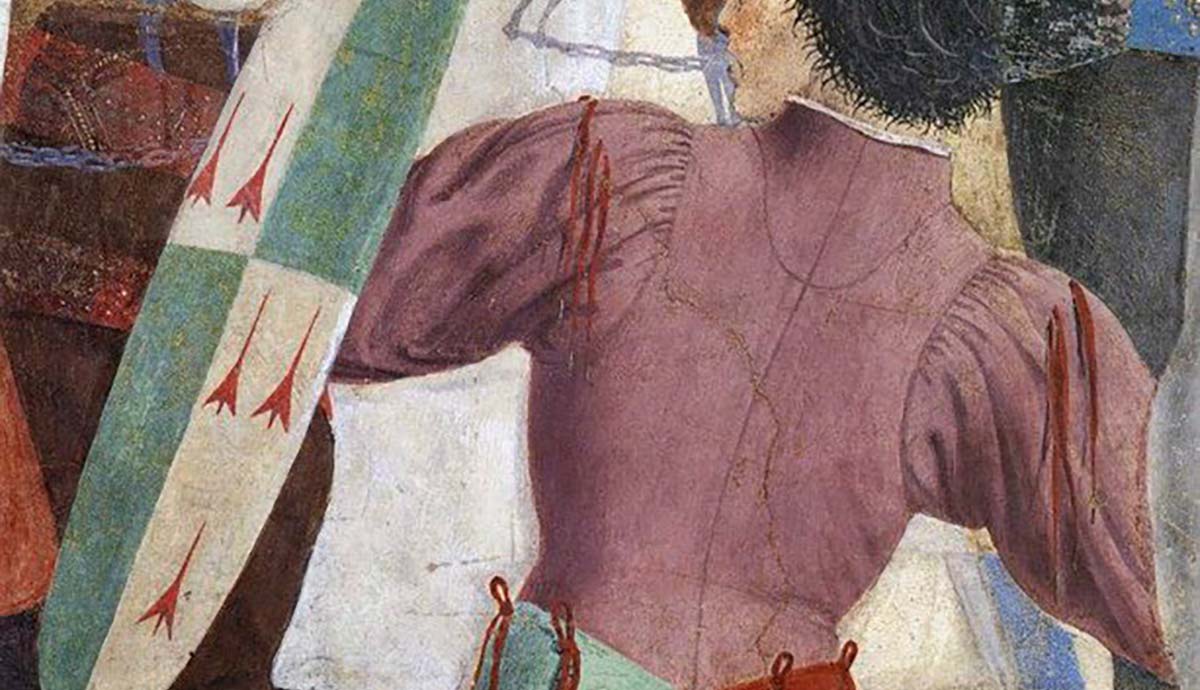
Although there are numerous examples of knights being armed in period illustrations, almost no written descriptions have survived. One notable exception is the 15th-century English treatise commonly known as "How a man schall be armyd" found in the Hastings MS. Written about 1450, it describes step-by-step how a knight would be dressed in armour before fighting in a judicial duel. The following is a transcription of the passage [Hastings MS folio 122b] in its original Middle English: He schal have noo schirte up on him but a dowbelet of ffustean ...
